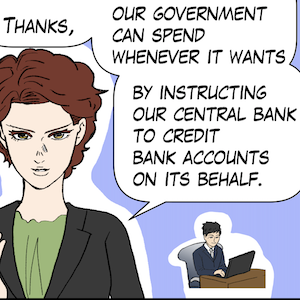Australian labour market deteriorates – employment and participation fall, underlying unemployment rate is 4.7 rather than 4.1 per cent
Today (March 20, 2025), the Australian Bureau of Statistics released the latest – Labour Force, Australia – for February 2025. The contraction in overall employment growth, the participation rate, and the employment-population ratio are all signs of a deteriorating situation. Unemployment always lags behind the employment dynamics because of the participation rate movements, which means that the situation is worse than the unemployment rate signals. The official unemployment rate was a steady 4.1 per cent but if we adjust for the changing participation then the underlying rate is about 4.7 per cent. That means that the 97.5 thousand LESS workers in the labour force due to the falling participation have entered the ranks of the hidden unemployed. We should also not disregard the fact that there is still 9.9 per cent of the working age population (around 1.5 million people) who are available and willing but cannot find enough work – either unemployed or underemployed and that proportion is increasing. Australia is not near full employment despite the claims by the mainstream commentators and it is hard to characterise this as a ‘tight’ labour market.
